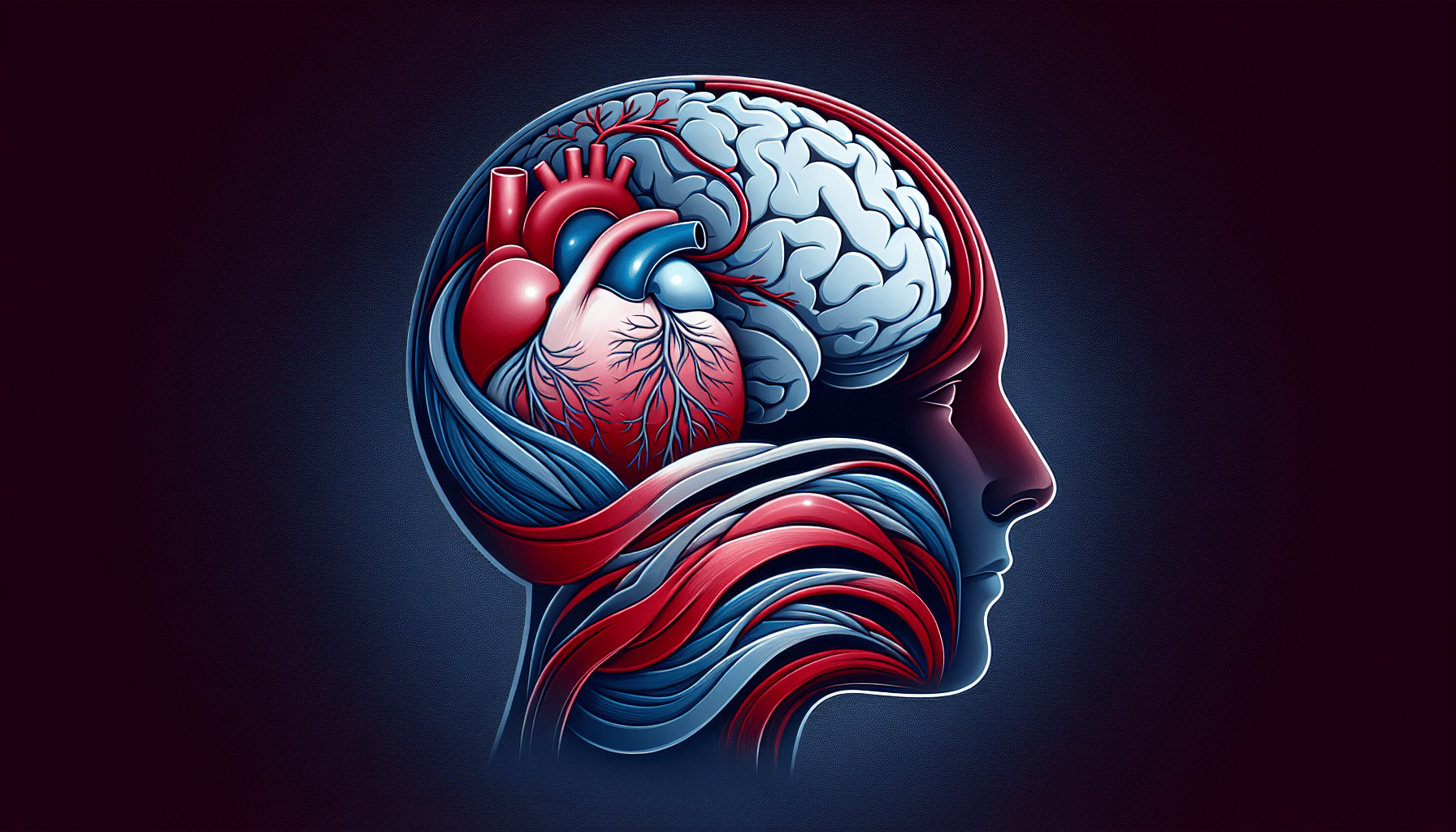Is there a connection between heart health and cognitive decline?
Understanding the Connection Between Heart Health and Cognitive Decline
You might be wondering if there’s a link between how your heart functions and the health of your brain, especially as you age. Over the years, various studies have provided compelling evidence that suggests a strong connection between cardiovascular health and cognitive performance. Let’s break it down to better understand this intricate relationship.

The Fundamentals of Heart Health
Your heart, a powerful muscle, is central to your circulatory system. It pumps blood throughout your body, delivering oxygen and essential nutrients to your organs and tissues. Keeping your heart healthy primarily involves maintaining good blood pressure, cholesterol levels, and ensuring that arteries remain clear from plaques that can impede blood flow.
What is Cognitive Decline?
Cognitive decline refers to the gradual loss of brain functions such as memory, attention, and decision-making. It can range from mild cognitive impairment (MCI) to severe conditions like Alzheimer’s disease. Factors such as age, genetics, and lifestyle choices play pivotal roles in how quickly and severely cognitive decline may set in.
How Heart Health Impacts Cognitive Functioning
Studies have shown that the state of your heart and blood vessels can significantly influence brain health. Here’s how:
-
Blood Flow: Your brain relies on a steady supply of blood to function correctly. When your heart health is compromised, it can lead to reduced blood flow to the brain, which might impair cognitive functions.
-
Oxygen Supply: Proper cardiovascular health ensures that your brain receives the oxygen it needs. Restricted or reduced blood flow can limit oxygen supply, negatively impacting cognitive abilities.
Common Conditions Linking Heart Health and Cognitive Decline
Several cardiovascular conditions are often linked to cognitive decline. Let’s look at some of these to understand the connection more deeply:
| Condition | Description | Cognitive Impact |
|---|---|---|
| Hypertension | High blood pressure, which can damage blood vessels. | Associated with risks of stroke, which can lead to significant cognitive deficits. |
| Atherosclerosis | Hardening and narrowing of arteries due to plaque buildup. | Can restrict blood flow to the brain, increasing the risk of dementia and MCI. |
| Heart Failure | A condition where the heart doesn't pump blood as well as it should. | Linked to problems with memory, attention, and decision-making. |
| Diabetes | A condition impacting the body’s ability to manage blood sugar levels. | Can lead to vascular complications, increasing the risk of cognitive decline. |
| Stroke | Occurs when blood flow to a part of your brain is interrupted or reduced. | Often results in immediate and severe cognitive impairment. |

The Role of Lifestyle Choices
Your lifestyle plays an enormous role in determining both your cardiovascular and cognitive health. Factors such as diet, exercise, smoking, and alcohol consumption can greatly influence these outcomes.
Diet
Eating a heart-healthy diet can protect you from cardiovascular diseases and, in turn, may keep your brain healthy. Diets rich in fruits, vegetables, whole grains, lean proteins, and healthy fats are beneficial. Maintaining balanced macronutrient and micronutrient intake supports overall health and helps prevent chronic diseases.
Exercise
Regular physical activity boosts heart health by improving circulation, lowering blood pressure, and helping to regulate blood sugar levels. Exercise also fosters brain health by increasing blood flow to the brain, promoting neurogenesis (the growth of new neurons), and reducing inflammation.
Smoking and Alcohol
Smoking and excessive alcohol consumption are detrimental to both heart and brain health. They can lead to atherosclerosis, hypertension, and other cardiovascular conditions, which may, in turn, contribute to cognitive decline.
The Science Behind the Link: Research Findings
Extensive research has been conducted to elucidate the mechanisms linking heart health and cognitive decline. Here are some key findings:
Inflammation
Inflammation is a common thread in both heart disease and cognitive disorders. Chronic inflammation can damage blood vessels, leading to cardiovascular diseases. It can also promote neuroinflammation, which is a significant factor in cognitive decline and diseases like Alzheimer’s.
Oxidative Stress
Oxidative stress occurs when there is an imbalance between free radicals and antioxidants in your body. This imbalance can damage cells and tissues, including those in your heart and brain. Both cardiovascular diseases and cognitive decline have been linked to high levels of oxidative stress.
Genetic Factors
Some genes are associated with an increased risk of both heart disease and cognitive decline. For example, the APOE e4 gene variant is a known risk factor for Alzheimer’s disease and has also been linked to higher risks of cardiovascular conditions.
Practical Steps to Improve Heart and Brain Health
There are several practical steps you can take to improve your heart and brain health. These actions can help you mitigate the risk of cardiovascular diseases and cognitive decline.
Regular Check-ups
Routine health screenings can help you monitor factors such as blood pressure, cholesterol levels, and blood sugar levels, enabling early intervention when necessary.
Stress Management
Chronic stress negatively impacts your cardiovascular and cognitive health. Techniques such as mindfulness meditation, deep breathing exercises, and yoga can help manage stress effectively.
Staying Socially Active
Social engagement is beneficial for cognitive health. Activities like volunteering, joining clubs, or spending time with family and friends can stimulate your brain and help you stay mentally sharp.
Recognizing Early Signs of Cognitive Decline
Early detection of cognitive decline allows for timely intervention. Here are some signs to watch for:
- Memory Loss: Difficulty recalling recent events or conversations.
- Confusion: Problems understanding time, place, or things familiar to you.
- Language Problems: Struggling to find the right words or following a conversation.
- Poor Judgment: Making unusual decisions or having difficulty with problem-solving.
- Withdrawal: Losing interest in activities you once enjoyed.
Medical Interventions
When lifestyle changes aren't enough, medical interventions may be necessary. It’s essential to discuss with your healthcare provider the most appropriate strategies for you.
Medications
Medications such as antihypertensives, cholesterol-lowering drugs, and diabetes management medications can help control risk factors associated with cognitive decline.
Surgical Interventions
In some cases, surgical procedures might be required to address cardiovascular problems that could impact brain health. These might include procedures like angioplasty or bypass surgery.
Cognitive Therapies
Various cognitive therapies and exercises can help maintain cognitive functions. These therapies often involve activities designed to improve memory, attention, and problem-solving skills.
Research and Future Directions
As science advances, new therapeutic strategies and preventive measures are being developed. Researchers continue to study the underlying mechanisms linking cardiovascular health and cognitive decline.
Neurovascular Units
Recent studies highlight the role of neurovascular units (NVUs), which are complex structures composed of neurons, blood vessels, and supporting cells. NVUs play a crucial role in maintaining brain health and proper blood flow.
Biomarkers
Identifying biomarkers that could indicate early stages of cognitive decline or cardiovascular diseases is a significant area of research. These biomarkers can help in the timely diagnosis and intervention, potentially slowing or preventing cognitive decline.
Personalized Medicine
The future of medicine is moving towards personalized approaches. Tailoring treatment plans based on individual genetic makeup, lifestyle, and specific health conditions can optimize both cardiovascular and cognitive outcomes.
Conclusion
Understanding the connection between heart health and cognitive decline is essential for taking proactive steps towards maintaining overall well-being. By prioritizing cardiovascular health through lifestyle changes and medical interventions, you can also support your cognitive functions and potentially reduce the risk of significant cognitive impairment. It's never too late to start focusing on a heart-healthy lifestyle, which will benefit both your heart and your brain over the long term.
